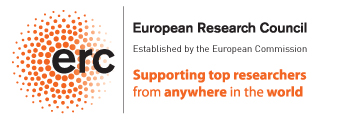ICAD News - Environment Agency Climate Purveyors Workshop, November 2014
Environment Agency Climate Purveyors Workshop, November 2014
Last week I attended a workshop organised by the Environment Agency, in partnership with Roger Street, UKCIP, on the UK climate services market, and particularly the role of climate purveyors. Having approximately €800 million over the next 5-10 years, the European Union, through Horizon 2020 and the Joint Programme Initiative, is aiming growth the climate services market, with the UK’s research community and industry eligible to apply for this funding. The workshop also served as an opportunity for the Environment Agency to feel out what its role might be in this new marketplace.
The large mixed group including academics, researchers, consultants, policymakers, and government officials came, and were repeatedly told that if they can find new ways to collaborate all this money could come their way.
The event helped to showcase a number of things:
First, the Environment Agency (EA) has really grown into its Climate Ready role, becoming actively aware of several concerns/barriers for those operating in the UK climate services market:
- Climate change is just one of many business risks competing for organisations’ attention, and often its not a priority. Separating climate from these other risks, as a way to drive organisational attention, is not always practical or desirable.
- When impacts are not imminent businesses are not interested. A fail and adapt mentality persists, which assumes the economic savings of acting now are negligible when weighed against the cost of future action; not withstanding the difficulty of selling adaptation to board members with known uncertainties (social, economic, political etc).
- Lack of information can also act as barrier to adaptation but more often its an absence of simple, clear, and easily digestible information that’s the problem.
During the workshop, participants were asked to fill in a survey about their climate service experiences (e.g. clients, services, barriers).
We also heard from Innovate UK. Once the Science and Technology Board, Innovate UK explore ways of increasing trade opportunities for UK plc. The main take-home message from her was that the next set of funding released by the EU will focus on ‘research to retail’ – how to turn research into products and services with a commercial edge. Although UK academia has a very strong reputation, and scores highly in the league tables for funding, on this theme there is room for improvement. In particular, UK academics don’t partner well (or enough) with UK businesses, especially small and medium enterprises. Forging these links would greatly improve funding opportunities for the next round of funding proposals in August 2015.
It was noted that one of the reasons for this situation was because UK academics have been clever in partnering with researchers and companies in other countries to improve the appeal of proposals. Furthermore, the way cost-recovery works for EU funding means that commercial bodies normally have to contribute 30% of the total budget towards running the project making it a hard-sell. This barrier would need to be addressed if consultancies and other smaller companies are to get involved.
Interestingly one of the government’s mantras, and a perceived barrier to entering the climate services market, open data was problematized. For instance, making thousands of datasets freely available is of little use if no-ones clear on the standards of that data or has the infrastructure (e.g. resources, computing, and people) to exploit it. Yet if the data is not opened up it can create a reliance on intermediaries to continue doing hocus-pocus magic backstage where the process becomes black-boxed and clients are unable to intelligently examine the work that’s been done.
Three barriers impeding the progress of consultancies currently in the climate services market were also identified:
- Weakening regulation. The Coalition Government’s policy of removing the local government National Indicator 188 target for adaptation, and making the Adaptation Reporting Powers second round voluntary, were negatively affecting the demand-side of climate services. Unless there’s a greater push from the state for this analysis concern was expressed that the market will shrink.
- Data needs. Mismatch between the availability and confidence in climate data. Difficulties with obtaining data in the UK, either because of the cost or bureaucracy involved in the licenses which are too restrictive, sits in stark contrast to the US. This is partly an artefact of the Met Office being a trading fund, or business, and needing to make money from the data it produces. Data gaps in overseas areas, such as time series, hydrometrics, and extreme data, make the rollout of UK methods/expertise problematic.
- Managing uncertainty. A lack of capacity (and appetite) exists for businesses to manage uncertainty. This means there is a fundamental mismatch in the tools and information being provided and the decisions being taken. A culture change is needed in how businesses can take robust decisions with climate information.
All in all, a really stimulating and interesting event and one which has reaffirmed the value of the work being carried out by Project ICAD.

